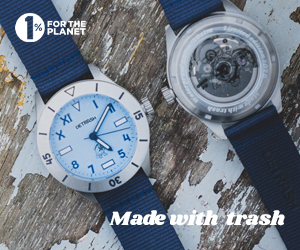Mark Britten is a quietly spoken man with a soft smile and friendly handshake. We meet in a fashionable vegetarian restaurant where he drinks chai tea and discusses the property portfolio he’s currently building up. The working capital to start this little nest egg came from a couple of years in the Middle East working with an oil company – but he’s never seen a rig and he’s got no engineering skills. When I asked about his most exciting experience on the job, it transpired it had nothing to do with a pump at all.
‘We were ambushed,’ he explains calmly. ‘It was very annoying. There was a tanker convoy that needed to travel from Basra but as soon as we got near Fallujah we were massively attacked – first by an RPG that missed; then mortars. One went off five metres away but into deep sand so you didn’t catch the shrapnel; and then it was small-arms fire. I had to make sure the rest of the team got through the killing zone while I suppressed the enemy by pushing out as much lead as I possibly could. So three of us got out of the vehicle and we just engaged the targets and neutralised them. I don’t know whether it was 30 seconds or five minutes. I know how many rounds I got through, but I have no idea about time. They weren’t disciplined, they didn’t communicate and they were not expecting the aggression from us. So we got everyone out of the killing area relatively quickly and were last men out with the windows open, weapons fully automatic in every direction.’
Tim’s tour of Iraq was filled with incidents like this. He ran a team of 100 former soldiers, some from the French Foreign Legion, some from South African special forces, some from Chile and some from the UK, who offered protection to the various private companies working on rebuilding Iraq’s shattered infrastructure. With the US army too stretched to provide bodyguard for civilians and even for some of it’s own generals, it’s been left to companies like his, Control Risks Group, Aegis or any of the 40-odd Private Security companies operating in the country, to pick up the slack – and earn a tidy dollar for so doing.
‘I was on pop star wages,’ Tim shrugs. ‘£350 a day. £10,400 a month – tax free. Good money. But I earned it. I would get up at 5.30 every morning after a relatively sleepless night, check with the local British base, have daily briefing reports with my clients and run regular crisis exercises so that I had my own quick reaction force. You don’t sleep. Every time the door goes, every time a car backfires … it sounds really clichéd but I lost my baby sleep out there. Still, I came back to London with four properties and my own personal training business.’
Tim represents a new wave of Private Security Contractors, or PSCs – young, ambitious, entrepreneurial and eager to make it outside the restrictive pay grades and promotional prospects of a staid military career. They earn big money in a war zone like Iraq or Afghanistan, invest in property or fly home via the bursting malls of Dubai and Kuwait with thirty thousand in the bank to pick up Fendi, Bang and Olufsen and even the odd Ducatti. Of course, they might also fall into the arms of the hookers at the Cyclone club – where Russian girls cost $200 and Chinese girls $100 – but, as former marine Pete Collins says, ‘It’s probably not such a bad thing to do, you’re so switched on after leaving that you’re like a Ferrari in a 20-mile zone ’tilyou get through some retail therapy – whatever it is you want to buy…’
‘These guys are operating in a very sink or swim environment,’ explains former marine Russell Corn, managing director of Diligence llc, which specialises inintelligence, security and risk management. ‘There are those who lack the imagination, drive and commitment and prefer the closeted comfortable life of a salary and a pension. Basically the character has to be self-reliant, intelligent and adaptive. We employ former intelligence officers from the CIA and MI6, investigative journalists and ex-bankers. I’d say we’re ten years at the most from a person who left thesecurity services or special forces becoming the CEO of a footsie 100 company. They’re getting into those via their security departments at 30 or 35 and they’ll rise to the top by the time they’re 40 because they’re bloody good.’
Both Corn and Fowler believe that security is the 21st-century equivalent of the dotcom boom and, like that heady era of youthful talent and eager venture capitalist, these bright young professionals are sweeping away the 1970s Dogs of War image of retired officers propping up African dictators.
Today’s private-security contractor may be protecting a convoy in Iraq one month, guiding an oil rig through the pirate-infested Malacca Straits the next and checking in with some government contacts in Kazakhstan before the year’s out.
Tim had been a graphic designer before joining the army. Some of his Iraq colleagues had worked in the arts or media before signing up, while others had originally picked on a military career because it seemed to offer excitement and – in the heady days of 1990s peacekeeping – a chance to make a difference. For most of them, that means they are still far more sensitive to local concerns than many of the bootneck US marines.
‘When I set up, I put this message out to the sheiks – “I want to hire some local guards, and I know you’re the sheiks in the area, so how much is it going to cost me?” ’ Tim explains. ‘So I’m putting money into the community and I’m training them. I’m giving them a sense of pride. Our food was locally purchased and we had Iraqi chefs. We had such strong relationships, my Iraqis would stick toe to toe with me engaging their own people. What more can you ask? Although one of the moments I really smiled was when army intelligence rang me up on my sat phone and said, “Tim, look, don’t want to worry you but one of our agents has come back and said there’s quite a serious price on your head.” But I came back.’









